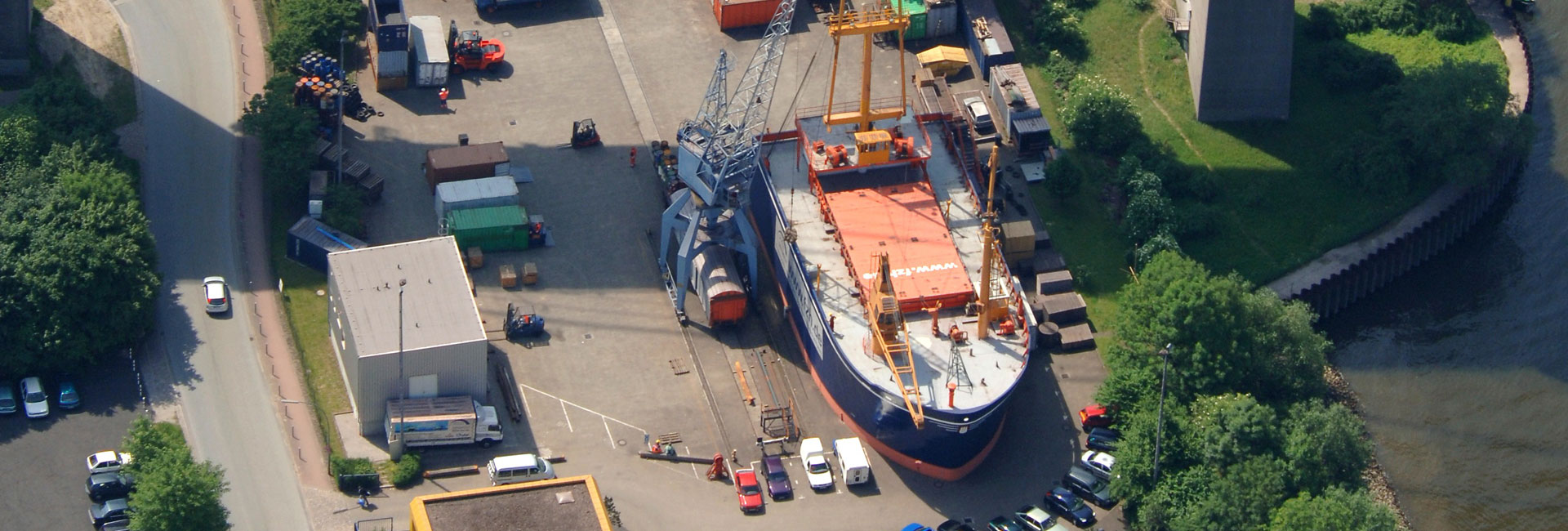"Port staff must possess specialist expertise"
The port is the backbone of the national economy in Germany, said Sönke Fock, Chief Executive of the Hamburg Employment Agency ...

With the start of the digital age, a transition has set in. Many occupations are being transformed. Growing automation of many work processes increasingly calls for fresh in-service training among staff. This particularly concerns their affinity with digital ways of working. The PortSkill 4.0 research project aims to ascertain just what present and future staff will need to contend with. Several companies operating in the Port of Hamburg have joined forces to back this project. With ma-co heading the consortium, HHLA Hamburger Hafen und Logistik, BLG Logistics Group and PatientZero Games are also involved in PortSkill 4.0. In addition, these partners are backed by the ver.di trade union and ZDS – The Federation of German Seaport Operators. The project is being funded by the German Ministry of Economics under its IHATEC II program.“
Until 2025 we shall be investigating what repercussions the digital transformation will have on the German maritime economy and work in the ports. That means the operative, technical and administrative areas of work in the German seaport industry. Finally, it will be possible to determine whether and how the training programs for the individual occupations will change,” says Gerrit Küther, CEO of ma-co. Even a brief glance at processes in the port industry shows that much is changing. HHLA, for example, has automated container transport. Along with MAN, the group is simultaneously testing how driverless trucks can be handled on site. Staff with further qualifications will be needed for that in future. The project addresses such examples and aims to analyse which skills are essential there.
“We shall see that the findings flow into the development and investigation of new teaching program and methods. Digital learning will be highly rated there,” stresses Küther, adding that “We shall develop new digital learning worlds that will be tried out in a Test and Training Center during a pilot exercise staffed by personnel from port operators.”
Learning potential will be framed and in-service training courses for existing staff researched in the center. Courses and training for new employees still undergoing training will also be researched there. The training center will be equipped with digital learning worlds and haptic elements. In a pilot scheme, these will facilitate training in illustrating and simulating real processes that employ digital twins in such a way that in these learning worlds, administrative, operative and technical competencies can be developed.
As a flanking measure, the socio-economic repercussions of the digital transformation for German port operators will be researched in close consultation with ver.di, and recommendations for action framed. After the end of the project, the findings of PortSkill 4.0 will be transferred to our training course. They will form the basis enabling us also to meet future requirements for adaptation included in the qualification profiles in Port Work 4, and to implement these,” says Küther, adding that “We shall therefore continue to ensure an excellent standard for the training and education of those employed in the German port industry.”
The – non-profit – ma-co maritimes competenzcentrum – is the body responsible for providing training for German seaports and port-related logistics operators. The company is represented in Hamburg, Bremen, Bremerhaven, Wilhelmshaven and Dortmund. Irrespective of site, ma-co has the use of over 25 own training rooms plus three exercise areas for pragmatic training. ma-co is known for qualifying people with different biographies and CVs for the employment market and indicating career development paths. Activities here are centred on pragmatic training involving target group-related syllabuses learning methods – both digital and analogue.
In close cooperation with local companies, authorities and institutions, ma-co develops and implements practically relevant schemes. A total of approximately 7,500 participants per year are trained on ma-co premises and at companies. In cooperation with the Federal Employment Agency, as part of the German seaports’ qualification drive since 2006 over 5,500 long-term unemployed have been trained by ma-co prior to being taken on by German seaport operators. They have also been trained on how to to retain their jobs.
ma-co as a non-profit institution is funded by social partners. Membership of its committees consists equally of delegates from port employers’ associations and the ver.di trade union, the former being HR board members from major German seaport operators.